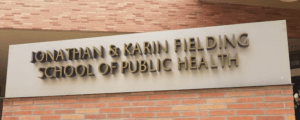Earlier this month on November 1, the Graduate Program in Public Health at the Icahn School of Medicine at Mount Sinai gave Intervene Upstream the opportunity to host a round-table discussion at its second annual Public Health Professional Development Conference, a program for early professionals and public health trainees to polish career-building skills and learn about public health in the field. With the support of our publication company, Pager Publications, Catherine Zaw, managing editor, flew up from Miami, Florida, to co-host the event with Nicky Tettamanti, editor-in-chief.
In this piece, we want to provide some reflections from the conference, including take-home points from the keynote, expert panel, and our own experience as part of the conference agenda:
Science and Health Communication as a Priority for Scientists
To start off the day, keynote speaker Dr. Paula Croxson discussed the importance of health communication and increasing public access to science. As a neuroscientist and award-winning science communicator, she reflected on her work as senior producer for The Story Collider, a podcast featuring “stories of science” that illustrates how science impacts our lives even beyond the test tubes and lab coats. She also introduced her work developing public programs for science outreach, and she presented passionate arguments to empower scientists to share science. We felt that one of the big take-aways from her presentation was that science and health communication must be a priority for scientists. As a field, we can all work towards advocating for increased institutional support for science communication, training opportunities for science communicators, financial reimbursements for the work, and a reward structure to encourage people to share science with others.
Communication is Collaborative
Following the keynote, we heard from a panel of professionals who discussed similarities and differences in media formats concerning health communication. Kathryn Ullman discussed her experience as senior media specialist for the Mount Sinai Health System, Attia Taylor shared her expertise as founder and editor-in-chief of Womanly Magazine, and Paula Croxson shared her work with the previously mentioned Story Collider project. All three panelists emphasized understanding your audience, because different audiences receive health information through different formats and mediums. For instance, Womanly Magazine intentionally prints their copies to distribute in local communities rather than remaining solely online, which inherently excludes those that do not or cannot rely on the internet.
One main underlying theme in the panel discussion was the emphasis on having fun! What we take forward is the reminder that as science communicators, we don’t need to view science as work or difficult. We can bring out the beauty of science. Communication is inherently collaborative, so be the nerd in the room and find entertainers to help get your message out! Overall, we need to relate to the audience’s life by increasing our signal and decreasing the noise in health communication.
Bias in Public Health Messaging
For our round-table, we discussed bias in public health messaging, inspired by our own observations of advertisements from various public health organizations. Although most publicized health messages distributed to communities are well-intentioned, we noted that many health programs attempt to encourage behavior change by utilizing shame and stigma or indirectly entrenched stereotypes about certain groups and populations.
With this in mind, we presented the round-table with various examples of advertisements. Our participants led discussions on what they felt worked, who the audience might be, who may have been included/excluded, and how the messaging could have been improved. As facilitators, we learned so much from the different perspectives brought to our table, and we thank all the participants who joined our discussions.
Have you seen any examples of bias in public health messaging that you’ve seen in your community? Share with us on Twitter or send us an email with your thoughts! Banner image courtesy of Kayleigh Barrett, Intervene Upstream Staff.
- Series 4– Public Health Solidarity - September 15, 2020
- Inequity, Domination, and Liberation during COVID-19 - September 15, 2020
- Archive – The Palate, Nutrition and Public Health - July 6, 2020




